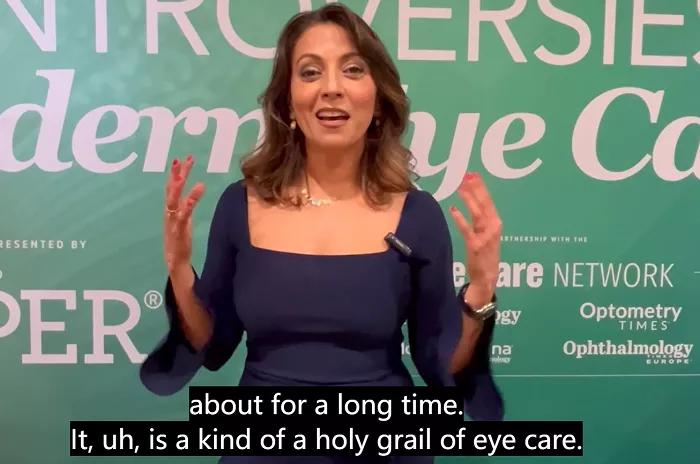At the recent Controversies in Modern Eye Care meeting, Dr. Neda Shamie shared expert insights on the growing role of pharmacological treatments for presbyopia, calling them a long-awaited advancement in ophthalmology.
With presbyopia affecting nearly everyone over age 45, the need for non-invasive and practical solutions continues to rise. While traditional options like reading glasses, monovision contact lenses, and refractive surgery remain effective, they don’t suit every patient.
Dr. Shamie pointed out a particular group of patients—emmetropic individuals in their mid-40s to mid-50s—who have always enjoyed good natural vision but now face early symptoms of presbyopia. For these patients, pharmacological eye drops offer an ideal bridge before surgical interventions become necessary.
Historically, 1.25% pilocarpine has been the mainstay for presbyopia treatment. Though effective, its higher concentration has led to side effects like headaches, brow aches, and reduced night vision, limiting its long-term use.
However, recent advancements have addressed these concerns. Dr. Shamie highlighted the FDA approval of pilocarpine 0.4%, a new, lower-concentration formulation that maintains effectiveness but offers a much better tolerability profile. This version also includes a soothing vehicle that helps improve ocular surface health, a common issue among presbyopic patients.
“This new drop is really a two-in-one solution,” Shamie explained. “It provides the visual benefits of pilocarpine while also supporting the health of the ocular surface.”
The introduction of this new formulation broadens the options for presbyopia management and emphasizes the importance of personalized patient care.
For eye care providers, the key is selecting the right patients—particularly those without cataracts who value convenience and freedom from glasses. For them, pharmacological drops offer an elegant and practical alternative to surgery.
As the field evolves, ophthalmologists are encouraged to stay informed about next-generation treatments and consider these drops as a valuable addition to their practice.
Related topics:


